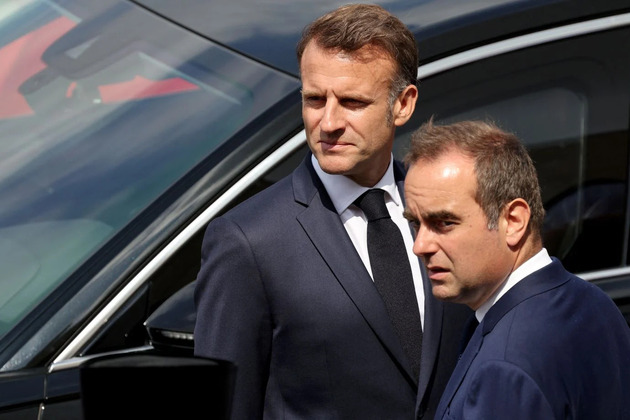Move FM Global News

Macron faces fresh crisis following Lecornu’s shock resignation
Oct 9, 2025PARIS, France: President Emmanuel Macron’s office announced on October 6 that Prime Minister Sébastien Lecornu had tendered his resignation, just hours after unveiling his new government, plunging France once again into political turmoil.
Lecornu, who served only 27 days, becomes the shortest-lived prime minister in modern French history. “Mr Sébastien Lecornu has submitted the resignation of his government to the president of the republic, which he accepted,” the Élysée Palace said in a brief statement.
The resignation came less than a day after Lecornu revealed his cabinet lineup, which notably brought back veteran politician Bruno Le Maire as defense minister. Le Maire, who previously headed the finance ministry, was tasked with managing France’s military support for Ukraine and strengthening European security amid continued Russian aggression.
A loyal Macron ally, Lecornu cited a lack of political consensus as the reason for his departure. “It would take little for it to work,” he said in a somber resignation speech. “By being more selfless, by showing humility, one must always put one’s country before one’s party.”
The shock resignation immediately sparked calls from Macron’s rivals for a new election. Far-right National Rally leader Marine Le Pen urged the president to dissolve the National Assembly, saying, “We have reached the end of the road. The only wise course of action is to return to the polls.” On the far left, France Unbowed demanded Macron’s resignation, while other opposition leaders called for reviving a broad left-wing coalition of socialists, greens, and communists.
Markets reacted sharply to the latest political upheaval. The CAC 40 index of leading French companies dropped nearly two percent from its close on October 3. Newly appointed ministers, some not yet sworn in, suddenly found themselves serving as caretakers, managing only day-to-day affairs until a new government is formed.
Agnès Pannier-Runacher, reappointed as minister for ecology, expressed her frustration on X, writing: “I despair of this circus.”
Lecornu’s cabinet choices had already drawn criticism across the political spectrum, particularly his decision to appoint Le Maire to defense. Critics faulted Le Maire for overseeing a sharp rise in France’s public deficit during his tenure as finance minister.
Lecornu had been expected to focus on passing a contentious budget as France grapples with soaring debt. By the first quarter of 2025, public debt had reached 3.346 trillion euros (US$3.9 trillion), about 114 percent of GDP, with debt servicing consuming roughly 7 percent of state spending.
Many key ministers from the previous government remained in place, including Bruno Retailleau in the interior, Jean-Noël Barrot in foreign affairs, and Gérald Darmanin in justice.
Macron’s government has been mired in instability since last year’s snap elections left the National Assembly deeply fragmented. Far-right and left-wing lawmakers together control more than 320 seats, while the centrist bloc holds only 210. Lecornu had pledged to seek compromise across party lines and avoid invoking the controversial constitutional mechanism that allows a government to push budgets through without a parliamentary vote.
His brief tenure, however, ended before he could even begin that effort.


